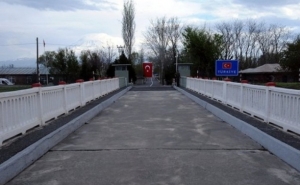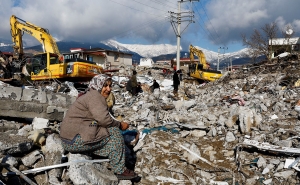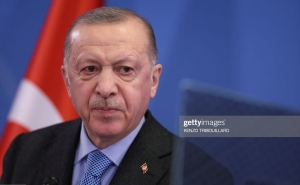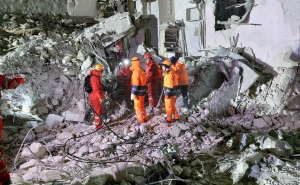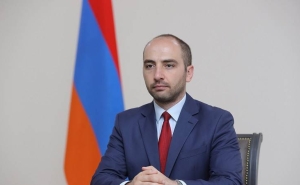 Karabakh Four-Day War and Turkish Calculations
Karabakh Four-Day War and Turkish Calculations
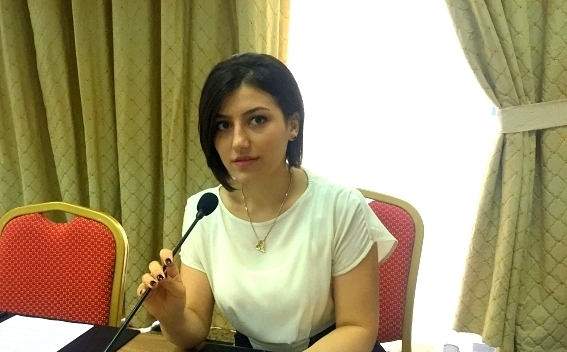
The four-day war unleashed by Azerbaijan on the entire NKR-Azerbaijani border, has created a new reality in the region, forcing to think about the development of the necessary strategies to face the challenges arising from the current situation and to use the given opportunities. This problem was also faced by Turkey, the example of which is particularly interesting, considering its regional interests and "brotherly relations" with Azerbaijan.
How did Turkey react to the aggressive actions of Azerbaijan against NKR? What are the motives of the Turkish position? What did Turkey win or lose as a result of all this? Let's try to find answers to all these questions.
Turkey's involvement in Azerbaijan's actions were expressed both directly and indirectly.
In the recent days, the Turkish authorities with all possible levels expressed unconditional support to their "brotherly Azerbaijan". Turkish President Rejep Tayyip Erdogan, Prime Minister Ahmet Davutoglu, Foreign Minister Mevlüt Çavuşoğlu and other leaders spared no effort to convince Azerbaijan that "Turkey will remain shoulder to shoulder with Azerbaijan until the end." Moreover, Turkey makes every effort to encourage Azerbaijan to continue armed attacks. "As long as Azerbaijani lands under occupation are not liberated, including Nagorno-Karabakh, we, 78 million of us, will continue to stand side by side with Azerbaijan," the Prime Minister of Turkey stated openly.
As for the direct aid to Azerbaijan by Turkey, it is no secret that Ankara provides Baku with military equipment and personnel. Among Azerbaijani armed forces there are officers and instructors of the Turkish army. Moreover, there is some information about the participation of militants of Turkish nationalist organization "Grey Wolves" in the Karabakh blitzkrieg.
However, this is not all. Some NKR officials mention that the number number of Azerbaijanis, Turks and other nationals who fought in the ranks of "Islamic state" terrorist organization among the Azerbaijani armed forces is not small. The number of Azerbaijanis who fought in Syria in the ranks of IS exceeds 2,500. And surely it can be argued that Turkey and Azerbaijan are actively involved in their operations against the NKR. These mercenary terrorists have committed atrocities also in Azerbaijani villages on the border with Artsakh, looting and raping the local Azerbaijani population.
It is significant that even after April 5, after the ceasefire in Karabakh, Turkey continues its political line, ignoring the appeals of the international community, who emphasize the need to exclude the involvement of "external players". Moreover, the statements of the Turkish authorities in support of Azerbaijan have become more and more "emotional and inspiring."
This, of course, should be considered within the framework of the need to keep Azerbaijan in the area of its influence and not only in the context of the "brotherly relations'' between Turkey and Azerbaijan. Turkey is trying with all possible ways to prevent the growing influence on Azerbaijan of other regional players, in this case - Russia. Besides, this is not only due to the current geopolitical developments, but also due to need to keep Azerbaijan among a number of Turkic-speaking forces in a broader context. And this task, especially after the collapse of the USSR and the acquisition of independence of Azerbaijan, occupies an important place on the agenda of Turkish politics.
In an effort to keep Azerbaijan in the area of its influence, Ankara also solves a number of other tasks. In particular, the media, standing close to the Turkish authorities, began to spread rumors that the Kurdistan Workers' Party (PKK) supports the Armenian side, by sending fighters to Artsakh, in particular. By spreading such misinformation Ankara solves two problems. First, it justifies military action carried out against the Kurds, stressing the danger of its spread. Second, indirectly blaming Russia in cooperation with PKK, because it is no secret that the Armenian-Turkish border is controlled by Russian forces.
Of course, as a result, Turkey loses the prospects of realization of certain ideas. In particular, Azerbaijan and Turkey, especially in the last period, were not sparing efforts for changing the format of the OSCE Minsk Group dealing with the settlement of the Karabakh conflict, in order to show the international community the need for including Turkey in it and explaining the need for maintaining the balance. If until now there was at least a small opportunity for the success of such efforts, now it became obvious for the sides involved in the conflict settlement and in general for the world that the inclusion of a country that is guided by such destructive methods, among the OSCE Minsk Group Co-Chairs is unacceptable.
It turns out that in an effort to keep Azerbaijan in the area of its influence, Turkey sacrifices the prospect to be among the Minsk Group Co-Chairs. Instead, Ankara could go with a more pragmatic way. After all, even if Azerbaijan as a result of strengthening of Russian influence becomes an EAEU and CSTO member, then Baku might become a representative of the interests of Ankara in these organizations. After all, we have such a precedent in the history, since in the Soviet Union Azerbaijan did serve the interests of Turkey.
Calculation of the Turkish authorities could be wrong. If further developments doe mot go the way Ankara wants it, Turkey may lose not only the prospects of being included in theranks of the Co-Chairs of the Minsk Group, but even the possibility to keep Azerbaijan in the area of its influence. In this case, the possibility that such a strategic failure of the Turkish authorities would cause the change of power in the country is not excluded. And the experience of military coups in Turkey have been well studied...
Other materials on this subject
- Russian forces have clearly failed in their duties: senators press Biden Administration to break Azerbaijan’s blockade The United States cannot stand aside while the Aliyev regime callously threatens the lives of Nagorno-Karabakh’s citizens, and must hold Azerbaijan to account for blocking a civilian population’s access...
- US calls for the full restoration of free movement through the Lachin Corridor "We remain concerned about impeded access to the Lachin Corridor and the humanitarian implications of this situation. This sets back the peace process and undermines international confidence. We call for...
- Azerbaijani forces violate the ceasefire in Artsakh The ceasefire violation was reported to the command of the Russian peacekeeping troops.
- Azerbaijani units violate ceasefire in several directions, Artsakh’s Defense Ministry says The Armenian side has no losses. The incidents of ceasefire violations were reported to the command of the Russian peacekeeping troops.
- Russian Diplomat Reassures Armenians Over Corridor In Karabakh "The parties are in direct contact, and I assure you that the peacekeepers will not move a single centimeter until there is a new corridor," Seleznyov said.
Other materials on this subject
- 2 dead, 2 injured after fire at lodging section of Armenian Catholic Church in Istanbul He said the firefighter-rescue team arrived immediately. Armenian Catholic Archeparch of Istanbul Archbishop Lévon Zékiyan was also on the scene.
- Turkey is sending Cold War-era cluster bombs to Ukraine – FP The weapons are designed to destroy tanks by bursting into smaller submunitions, which can linger on the battlefield for years if they do not immediately explode. Each round scatters about 88 bomblets.
- Fire erupts in Turkey’s Black Sea port of Samsun following explosion The causes for the explosion that led to a fire are currently being analyzed.
- EU Urges Turkey to Stop Offering Russia Solutions to Circumvent Sanctions Speaking about the EU's engagement with Turkey, an important neighbor, EU partner and candidate country for EU membership, we stress the importance of ensuring that Turkey's foreign policy is aligned with...
- Any Change of Internationally Recognized Borders in Region is Unacceptable – Iranian President to Erdogan "The basis of our policy in the region is that the fates of the countries must be determined by themselves and that their national sovereignty and territorial integrity must be respected" Raisi told Erdogan...
-
 17:08
17:08The regular session of the Anti-corruption Policy Council takes place in Jermuk
-
 15:05
15:05The Prime Minister sends congratulatory messages to the supreme leader of Iran and the President of Iran
-
 11:11
11:11Armenia sends earthquake aid to Turkey
-
 10:43
10:43Commemoration of the Pontiff St. Sahak Partev
-
 09:16
09:16Some roads are closed and difficult to pass in Armenia
-
 19:55
19:55Phone conversation of the Foreign Minister of Armenia with the U.S. Assistant Secretary of State for European and Eurasian Affairs
-
 18:30
18:30Prime Minister Pashinyan and President Khachaturyan meet
-
 18:20
18:20Ararat Mirzoyan with Co-Chairman of the OSCE Minsk Group of France Brice Roquefeuil
-
 17:01
17:01Humans could land on Mars within 10 years, Musk predicts
-
 16:45
16:45France, US urge 'immediate' end to Nagorno Karabakh blockade
-
 16:01
16:01Blockaded Nagorno Karabakh launches fundraiser to support quake-hit Syria
-
 15:59
15:59Earthquake death toll in Turkey rises to 18,342
-
 15:43
15:43Ararat Mirzoyan Held a Telephone Conversation with Sergey Lavrov
-
 15:06
15:06French president rules out fighter jet supplies to Ukraine in near future
-
 14:47
14:475 Day Weather Forecast in Armenia
-
 14:44
14:44President Vahagn Khachaturyan wrote a note in the book of condolences opened in the Embassy of Syria in Armenia
-
 14:20
14:20Azerbaijan’s provocations impede establishment of peace and stability – Armenian FM tells Russian Co-Chair of OSCE MG
-
 12:57
12:57France representation to OSCE: Paris calls on Azerbaijan to restore freedom of movement through Lachin corridor
-
 11:40
11:40Command of Kosovo forces highly appreciated preparation of Armenian peacekeepers
-
 10:16
10:16The United States withdrew from sanctions against Syria for six months the provision of assistance after the earthquake
day
week
month
Humidity: %
Wind: km/h


